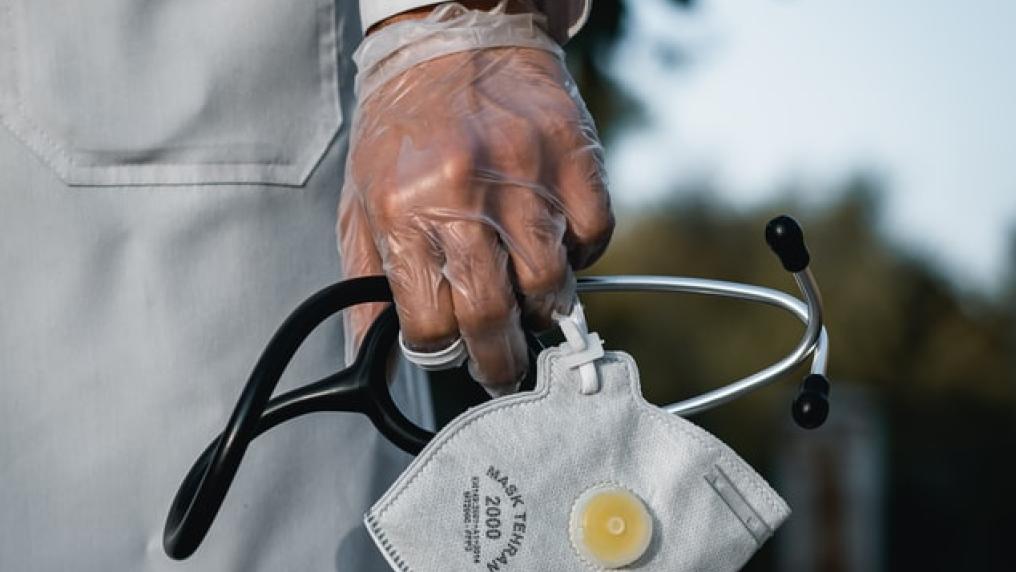World’s largest multi-professional survey of frontline healthcare workers

A national survey of nearly 10,000 healthcare workers (with results reported for 7800) during the second wave of 2020’s COVID-19 pandemic has revealed significant emotional consequences for those working in a health system under pressure.
Moral Distress and Perceived Community Views Are Associated with Mental Health Symptoms in Frontline Health Workers During the COVID-19 Pandemic study was co-led by Professor Karen Willis, sociologist from Victoria University and Associate Professor Natasha Smallwood, Respiratory physician from Monash University’s Central Clinical School and the Alfred Hospital. The study was an online survey of self-identified frontline healthcare workers (HCWs) across Australia conducted between 27 August and 23 October 2020.
According to Professor Willis, "the survey revealed 'alarming levels of emotional exhaustion amongst frontline healthcare staff'. Many staff were concerned about the impact of the pandemic on patient care".
Moral distress was associated with increased risk of anxiety, depression, post-traumatic stress disorder and burnout. Feeling valued by the wider community protected against these risks in healthcare workers, the survey found. Moral distress, also referred to as ‘moral injury’, is defined as ‘perpetrating, failing to prevent, bearing witness to, or learning about acts that transgress deeply help moral beliefs and expectations.
The study’s authors conclude that “understanding factors of moral distress prevalence and impacts on mental health is important to inform targeted interventions to safeguard frontline workforces during current and future crises”.
The study reveals that the moral distress triggers experienced by healthcare workers last year are associated with significant mental health impacts: Wearing personal protective equipment (PPE) affected their ability to care for patients with COVID-19; being worried about letting down colleagues if they needed to quarantine were significant; being worried about excluding family members from COVID-19 patients’ bedsides were all significant, independent predictors for all adverse mental health outcomes.
The survey also found that worrying that patients would not receive appropriate care due to scarcity of healthcare resources was a significant independent predictor for experiencing post-traumatic stress disorder (PTSD) and emotional exhaustion. Believing that the community was concerned that HCWs would spread COVID-19 to other people was a significant, independent predictor for experiencing anxiety, PTSD.
The survey, published recently in the International Journal of Environmental and Public Health, found that almost 60% reported moral distress due to resource scarcity such as hospital beds; more than 30% were distressed by PPE limiting their ability to care for patients; more than 60% felt that excluding family from seeing patients went against their values and 55% were worried that they would let their colleagues down if they became infected.
Study findings
In detail, the study found that:
- Participants were mostly female (over 80%) with an even spread of age ranges, residing primarily resided in Victoria (85.2%), with the remainder spread across other Australian states and territories. Most participants were nurses (39.4%), doctors (31.1%), or allied health professionals (16.7%), with the remainder holding administrative (6.2%) or other health roles (6.7%). Almost one third of participants (30.4%) reported having a pre-existing mental illness diagnosed prior to the pandemic.
- Of those for whom resource limitation and its impact on patient care – these included workers in primary, community, or aged care, intensive care unit (ICU) (relative to emergency department), working in metropolitan areas (relative to regional or remote), and those with a pre-existing mental health diagnosis. Participants who worked as nurses or allied health professionals (compared to doctors) were less likely to worry about resource scarcity.
- Regarding the need to wear PPE - individuals who worked in nursing, allied health, and other health roles (compared to doctors), or who were confident using PPE (compared to not confident) were significantly less worried about the effects of wearing PPE on patient care.
- Participants who worked in primary, community care, and aged care (compared to emergency department – ED), those living in metropolitan areas (compared to regional or remote areas), who had pre-existing mental health diagnoses, or who desired more training regarding PPE or managing patients with COVID-19 (compared to those who did not) were significantly more likely to be worried about burdening their co-workers if they needed to quarantine.
- Nurses and allied health professions (compared to doctors) and people working in ICU (compared to ED) were significantly less likely to worry about the effects of quarantine on co-workers’ caseloads.
- Independent predictors for believing that excluding family from the bedside of COVID-19 patients went against their values as HCWs included female gender (relative to male), having a pre-existing mental health diagnosis, and indicating need for more training in care for patients with COVID-19 or use of PPE. Non-medical staff (in comparison to doctors) and participants who worked in ICU, anaesthetics and surgery, medical specialties, and other frontline areas (in comparison to ED) were significantly less likely to worry about excluding family from the bedside of COVID-19 patients.
Available for interview
To arrange an interview with Professor Karen Willis, contact Frances Atkinson, Media Adviser:
Phone: +61 435 960 793
Email: .



